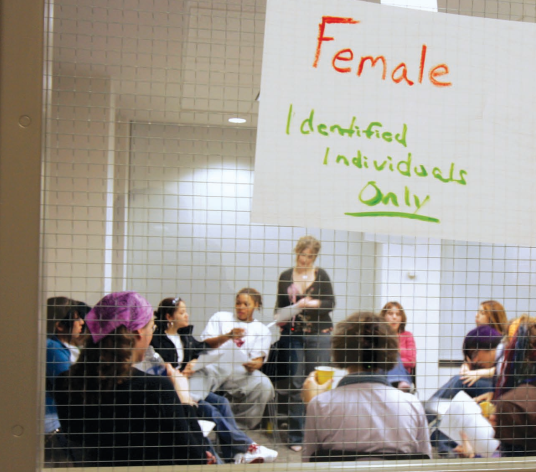- INTRODUCTION
Replacing Myths with Knowledge - CHAPTER 1
A Sense of Self... - CHAPTER 2
Conflicts and Roadblocks... - CHAPTER 3
Health and Wellness... - CHAPTER 4
Social Issues... - CHAPTER 5
The Role of the Media... - CHAPTER 6
Finding Support...
To KimThanks for your insight
Published in 2010 by The Rosen Publishing Group, Inc.
29 East 21st Street, New York, NY 10010
Copyright 2010 by The Rosen Publishing Group, Inc.
All rights reserved. No part of this book may be reproduced in any form without permission in writing from the publisher, except by a reviewer
First Edition
Library of Congress Cataloging-in-Publication Data
Nagle, Jeanne.
GLBT teens and society / Jeanne Nagle.
p. cm.(Teens: being gay, lesbian, bisexual, or transgender)
Includes bibliographical references and index.
ISBN 978-1-4358-3581-8 (library binding)
1. Gay youth. 2. Gay teenagers. I. Title.
HQ76.27.Y68N35 2010
306.76'60835dc22
2009015657
Manufactured in the United States of America
CHAPTER 1
A Sense of Self...
CHAPTER 2
Conflicts and Roadblocks...
CHAPTER 3
Health and Wellness...
CHAPTER 4
Social Issues...
CHAPTER 5
The Role of the Media...
CHAPTER 6
Finding Support...
INTRODUCTION
B eing a teenager isn't always easy. Sometimes it can seem as if school, family, friendseven your own body and mindare ganging up on you. You're not a kid anymore, but you're not quite an adult yet, either. You're somewhere in between those two worlds, and it can feel like you're missing out.
To top it all off, you probably have more questions running around in your head than you do answers. Who am I, really? What do people think of me, and what do I think of them? How am I supposed to act at school, at home, and in front of my friends? Why am I being treated so unfairly? What did I do to make people I don't even know dislike me? Will I ever find somebody to love? Why can't I just be myself?
Growing up can be extra tough when you're a GLBT (gay, lesbian, bisexual, or transgender) teen. Sometimes it might feel like society tries to lump you into a category instead of seeing you as a unique individual. Every day, in so many ways, you are reminded that you are "different." You may worry that this difference will leave you feeling lonely and rejected. You might feel as though you are being judged based on some people's inaccurate idea of what it means to be gay. This can be unfair, especially when some people's understanding of what it means to be gay springs from ignorance or even outright bigotry.
While there are still misconceptions about the GLBT community, it's comforting to know that society is continuing to grow more tolerant and accepting of GLBT individuals. At one time, GLBT issues were not discussed in school or in the media. Today, it's easy for anyone to find information on GLBT issues. GLBT characters can be found on television and in the movies. There are laws protecting GLBT rights. Nearly every state in the United States allows GLBT couples to adopt children, and several states have legalized same-sex marriage. There are also many GLBT organizations that offer support to GLBT teens. Gay teens may still need to fight for basic rights that their heterosexual peers take for granted. But with a little patience and a lot of faith in themselves, gay teens should be able to withstand whatever life, and adolescence, brings their way.

I t can be difficult to deal with the many issues all teens, both gay and straight, have to juggle these days. Dealing with these issues gets much easier the more you strengthen your personal identity or sense of self. Your personal identity is a combination of how you act, what you believe, what you like, what you dislike, and the goals you set for yourself.
By the time the preteen and teenage years roll around, many changes are happening all at once.You may find yourself struggling with a clear vision of who you are and who you want to become. At this point in a teenager's life, fitting in can seem like a big deal. Many teenagers place huge importance on what their friends say, wear, do, and believe. When this happens, their desire to fit in can override their personal identity. For instance, they might take up smoking because the popular kids do it. Maybe they repeat gossip about someone they barely know simply to entertain their friends.
Society is more tolerant and accepting of GLBT individuals than ever before.Today many GLBT individuals come out during their teenage years.
Sexual Orientation and Gender Identity
Your sexuality is strongly tied to your personal identity. Human beings are sexual by nature and need to make loving, physical connections with others. During the preteen and teenage years, your body is suddenly flooded with chemicals called hormones, which make you aware of your sexuality.
This is a GLBT support group at DePaul University in Chicago, Illinois, for female-identified members, including transgender individuals, who may have been born biologically male but identify as female.
There are differences in how people express their sexuality. A person's sexual orientation is defined by whether he or she is attracted to members of the same sex or members of the opposite sex. A majority of people are attracted to individuals of the opposite sex, meaning men are attracted to women and vice versa. These people are heterosexual. Fewer people although still a large number of themhave romantic and sexual feelings toward the same sex. These people are gay. Those who are attracted to both sexes are bisexual.
Transitioning and SRS
Some transgender people decide that they want to change their appearance, or even their body, to match their gender identity. This is a process known as transitioning. Transitioning can be as simple as choosing to wear different clothing or getting a different hairstyle. It can also involve changing one's speech patterns and mannerisms. Sometimes transitioning involves physical changes. Some transgender people undergo hormone therapy to transform their body.
For some people, transitioning can also involve sexual reassignment surgery (SRS). This process surgically alters the body to resemble that of the opposite sex. Most candidates for SRS are required by their doctors to live openly as their true gender for a period of time prior to getting surgery. It can be important for people considering SRS to also receive counseling. Counseling can help them figure out if reassignment is the right move and if they are mentally and emotionally ready.
The final step is undergoing surgery that makes the body match the gender identity. Doctors generally do not perform sexual reassignment surgery on minors. They want to make sure that patients take plenty of time before making such an important decision.





















